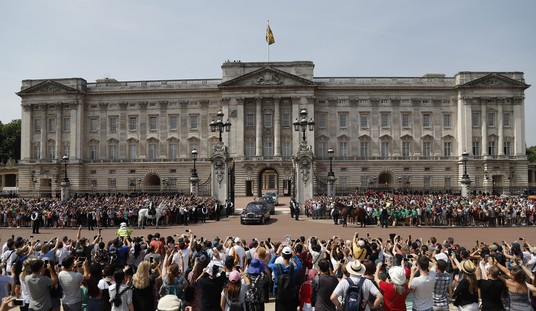Egypt’s parliamentary elections are set to be held in September, giving the secularists only about four months to mobilize against the Muslim Brotherhood and other Islamists that have been organizing for decades in Islamic institutions. The Brotherhood’s ground game is unmatchable, but a new poll by the International Peace Institute provides some hope. It shows that is it the secular Wafd Party, not the Muslim Brotherhood, that has the most support in Egypt.
According to the survey, the Wafd Party has a 46 percent approval rating, followed by the Brotherhood at 38 percent. Hosni Mubarak’s National Democratic Party still has significant support with a 26 percent favorability rating. When respondents were asked whom they intend to vote for, 23 percent said they are backing the Wafd Party. The Brotherhood scored 12 percent, only two points ahead of the NDP.
The secretary general of the Arab League, Amr Moussa, has a very strong lead in the presidential race with 37 percent saying they will vote for him and an overall favorability rating of 80 percent. Mohamed Tantawi, the chairman of the Supreme Council of the Armed Forces, has 16 percent saying they will back him. Ayman Nour, another secularist, has an approval rating in the 30s. Mohamed ElBaradei, however, has an approval rating of only 10 percent and only two percent of Egyptians intend to vote for him. These findings explain why the Brotherhood is only aiming to win 30 percent of the seats in the next parliament and says it will not run a presidential candidate, though el-Baradei has been closely tied to them.
Another important finding of the poll is that 60 percent of Egyptians want to preserve the peace treaty with Israel, though there is an important qualifier: This must come with the establishment of a separate, independent Palestinian state. It is encouraging that the Egyptian people look kindly upon a two-state solution, but it is unlikely this new state will be created any time soon. There is a significant danger that support for the treaty will steadily erode.
The poll also found significant hostility towards Iran. A previous poll found that only about half of Egyptians look upon Hamas favorably and 57 percent disapprove of Hezbollah. The IPI survey found that 36 percent are more likely to vote for a party that is opposed to Iran and its nuclear program. Twenty-two percent said they would be less likely. Amr Moussa, though he is more hostile to Israel and the U.S. than Mubarak, is also a strong opponent of Iran.
A mixed picture is forming of what the next Egypt will look like. A Washington Institute for Near East Policy poll in February that surveyed Cairo and Alexandria found very little support for the Brotherhood, but those two cities are highly Westernized and do not represent the entire country. A frequently mentioned Pew poll from 2010 shows strong support for Sharia-based justice, with 84 percent supporting the execution of apostates. The Brotherhood’s Islamist agenda, which includes creating a virtue police, would presumably allow it to capitalize upon this sentiment. However, this latest poll shows that the secularists will have the largest amount of seats in the next Egyptian parliament and possibly even a majority.
Of course, polls always change as campaigns progress. Brotherhood-tied clerics will soon begin declaring that it is a religious duty to vote for the Islamists. It will launch a new television channel called “Egypt 25” next month to promote the Freedom and Justice Party, the name the Brotherhood has registered as. The leader of the party, Mohamed Katatni, has been saying it is independent, but this is laughable as he is a senior Brotherhood member himself.
It can be tempting to let out a sigh of relief at this poll, but it would be a mistake to underestimate how strong of a hand the Brotherhood may have, even if it is a minority. If the Brotherhood wins around 30 percent of the seats, it will have significant sway over the writing of the constitution. It may effectively have veto power over key decisions like Hezbollah had in Lebanon before it collapsed the Hariri-led government.
It may actually be in the Brotherhood’s favor to be in such a position as an outright majority would alarm the West and potentially cause a coalescing of secularist forces. As one Brotherhood official explained, when asked about its embrace of Mohamed ElBaradei, “The Brotherhood realizes the sensitivities, especially in the West, towards the Islamists, and we’re not keen to be at the forefront.”
This all presumes that elections will be held and the next government will be formed. The deputy defense minister made an interesting comment recently: “Egypt will not be ruled by another Khomeini,” he said. “The [Supreme Armed Services] Council will not allow extremist factions to control Egypt.”
Egypt is in for a bumpy ride.









Join the conversation as a VIP Member